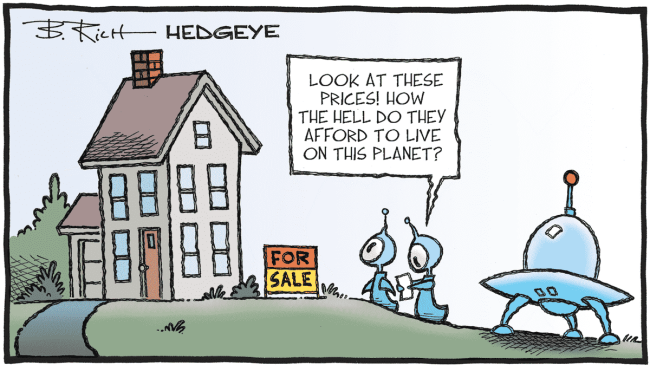
YOUR FINANCIAL JOURNEY SUMMER 2021
As I’m writing this in late July, the equity markets have just experienced a “mini”-correction where the S&P 500 dropped over 2% in 1 day due to concerns about COVID-19 cases spiking again in several parts of the country, and then rose 2% the very next day due to strong earnings reports from several large companies in the S&P. Day-to-day the equity markets will continue to be unpredictable. As noted financial author Jane Bryant Quinn said, “The market timer’s Hall of Fame is an empty room."
As you’ve no doubt heard me say before, it’s just impossible to know the short-term direction of the stock markets since so many complex factors (news cycles, psychology, etc.) affect its movement. Even with (ESPECIALLY with) all the volatility we’ve experienced during the COVID pandemic, I still believe that a solid long-term asset allocation strategy that fits an individual’s situation, risk tolerance and goals, along with periodic re-balancing to take advantage of both positive and negative market movement, is the best approach to take in investing.
One issue that has been on my mind a lot recently as it’s becoming more noticeable whenever I purchase something - or try to purchase something that may be out of stock due to supply problems caused by the COVID pandemic – is that prices of various goods and services are definitely going up. There’s little doubt inflation is heating up, but experts disagree whether it’s here to stay for a while or it may calm down.
To hear more about inflation’s comeback, listen to my recent podcast, Episode 2021-7 “Inflation is Making a Comeback”
Click HERE: Viaggio Wealth Partners Podcasts
As we end the 2nd quarter of 2021, we now enter another earnings season, where publicly traded companies report their most recent quarterly earnings. You’re probably wondering what “earnings season” is all about and how we as investors should approach each earnings season. Even though I love the fact that the U. S. has the most stringent reporting requirements for publicly traded companies and is very transparent, I’d personally be OK if companies only reported earnings once a year, as quarterly reporting arguably discourages long-term thinking on the part of management.
To hear more about my thoughts on “Earnings Season”, listen to my podcast 2021-8 “What is Earnings Season and Why Does it Matter?"
Click HERE: Viaggio Wealth Partners Podcasts
To Infinity....and BEYOND!
CLICK HERE: Jeff Bezos Goes to Space
It’s long been an aspirational target for entrepreneurs. It literally goes beyond “blue sky,” in terms of location, to a place no business has gone before: Outer Space!
Longtime space enthusiast and entrepreneur Richard Branson became the first person to travel to space using a self-funded vehicle. While the trip was brief, with Branson releasing an aspirational message during the few minutes of weightlessness afforded, it served to allow him brief bragging rights. Jeff Bezos, the recently retired billionaire executive, has now launched his successful space effort to coincide with the fifty-second anniversary of the Apollo 11 moon landing.
While these flights are full of such symbolism and pomp, they also reflect space entrepreneurship transitioning from pie-in-the-sky to, well, actual people in the sky. Where once the only space corporations were those with government contracts, working with NASA, the field is now open to potential space tourism, and other private-sector pursuits. Branson seems focused on offering wealthy passengers a trip of a lifetime. Bezos is on the cusp of the same but also has other, larger space-bound aspirations, potentially working with civil, commercial, and defense clients.
This launch into the final frontier is certainly exciting. As for other down-to-earth matters, I will remain with feet planted firmly on the ground and monitoring your financial journey.
The Investment Risk No One’s Ever Heard Of
Knowledgeable investors are aware that investing in the capital markets presents any number of risks, including interest rate risk, company risk, and marketrisk. Risk is an inseparable companion to the potential for long-term growth. Some of the investment risks we face can be mitigated through diversification.1
As an investor, you face another, lesser-known risk for which the market does not compensate you, nor can it be easily reduced through diversification. Yet, it may be the biggest challenge to the sustainability of your retirement income.
This risk is called the sequence of returns risk.
The sequence of returns risk refers to the uncertainty of the order of returns an investor will receive over an extended period of time. As Milton Friedman once observed, you should, “never try to walk across a river just because it has an average depth of four feet.”2
Sequence of Returns
Mr. Friedman’s point was that averages may hide dangerous possibilities. This is especially true with the stock market. You may be comfortable that the market will deliver its historical average return over the long-term, but you can never know when you will be receiving the varying positive and negative returns that comprise the average. The order in which you receive these returns can make a big difference. For instance, a hypothetical market decline of 30% is not to be unexpected. However, would you rather experience this decline when you have relatively small retirement savings or at the moment you are ready to retire – when your savings may never be more valuable? Without a doubt, the former scenario is preferable, but the timing of that large potential decline is out of your control.
Timing, Timing, Timing
The sequence of returns risk is especially problematic while you are in retirement. Down years, in combination with portfolio withdrawals taken to provide retirement income, have the potential to seriously damage the ability of your savings to recover sufficiently, even as the markets fully rebound. If you are nearing retirement or already in retirement, it’s time to give serious consideration to the “sequence of returns risk." Give me a call and we can discuss how I manage its' effect on YOUR portfolio.
1. Diversification is an approach to help manage investment risk. It does not eliminate the risk of loss if security prices decline.
2. Quotefancy.com, 2021
What Forces Are Driving the Housing Market?
Recently, you may have seen reports that a record-low number of homes are available for sale—roughly 1.03 million nationwide. If you compare that to the average number of homes for sale during the past 10 years, it's no surprise that many hopeful homebuyers are having issues securing a home.
Lack of inventory
There are a few major differences between 2007 and now, however, but the biggest difference? What we’re seeing now isn’t a bubble; it's simply a lack of inventory.
It’s a seller’s market
In many ways, this may be the most friendly market we’ve seen in quite a while for home sellers. Right now, nearly half of homes are selling within roughly a week or less. At the same time, median prices are rising at a phenomenal rate, and national prices, in general, have increased 17.2 percent over last year.
Why now?
Listings are skyrocketing for a number of reasons. Many experts believe the continued low mortgage rates, a pandemic-era construction slowdown, and an increase in money available for a down payment are all factors.
In this hyper-competitive market, many people are thinking of taking advantage of the situation by listing a property or home. If this sounds like you, give our office a call. We may be able to put you in touch with a housing professional who can offer some guidance and support.




